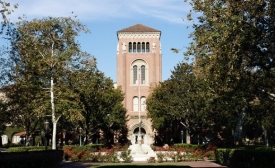public diplomacy
Diplomacy is an essential part of foreign policy. The postwar period saw the rise of public diplomacy, which went beyond traditional diplomacy in that it tried to influence public opinion in other countries. It dealt with influencing public attitudes on the formation and execution of foreign policy as private individuals began to engage in intercultural communication. Organized cultural visits like performances by philharmonic orchestras became part of public diplomacy.
On a sunny, crisp November day in 2008, three American civilians joined a platoon of United States soldiers on a foot patrol in Maiwand District, a flat, yellow patch of earth crowned by black-rock mountains in southern Afghanistan. The civilians were part of the Human Terrain System, an ambitious, troubled Army program that sends social scientists into conflict zones to help soldiers understand local culture, politics and economics.
Austerity or not, August is vacation time in Europe. As the continent's political leadership joins millions of citizens heading to the beaches, however, the tough economic times mean most are taking care to ensure their holidays look humble. Tropical beaches and hanging with billionaire buddies are out, stay-cations and low-cost flights are in as politicians take the ritz out of the recess.
Diplomacy is dead, at least according to New York Times columnist Roger Cohen writing earlier this year. His claim certainly sparked a great deal of discussion. But as someone who studies and teaches about foreign policy leaders, I would argue that the question is not so much whether diplomacy is dead, but how effectively diplomats – with their tradition of solving problems peacefully, creatively and innovatively – can collaborate with a growing number of governmental and non-governmental actors in an increasingly complex world.
Getting the latest news from VOA’s many language services just got easier with the launch of new mobile and tablet apps that work on iPhones, iPads, and Android devices. “Everything is available in one place now,” says VOA Director David Ensor. “This is a big step forward, and these apps open up the Internet to a new generation of mobile users.” Chinese, Russian, Swahili, Turkish, English and more – they are all there at the touch of a button on two of the world’s most popular mobile platforms.
A recent article in The Chronicle – ‘Is Europe Passé‘ – examines the US’s higher education efforts with new partners and how this affects relationships with the UK, among others. In response, the British Council’s higher education manager in the US, Janice Mulholland, suggests a different form of partnerships for institutions in a global economy.
I got into the public diplomacy game as a local hire as a Foreign Service National (FSN) working for the Israeli Foreign Ministry as a Press Officer for the Consulate General of Israel to the Southwest. As such, I have a deep appreciation for others who work as FSN for various foreign ministries and the U.S. Department of State.

The year 2013 marks the eighth annual Summer Institute in Public Diplomacy. This innovative, collaborative two-week training program run by the USC Center on Public Diplomacy at the Annenberg School allows professionals to immerse themselves in the increasingly critical study of public diplomacy.







